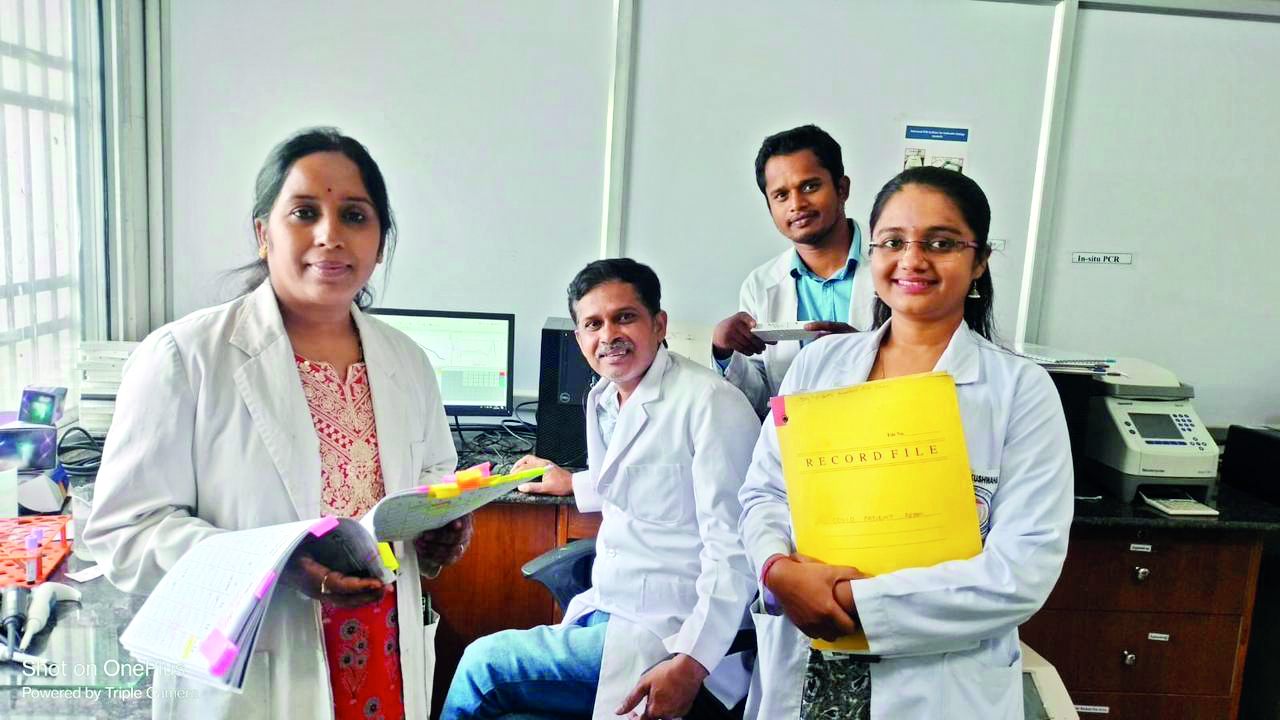In a first, biomarker kit to project Covid severity developed in Chh’garh

New Delhi: In a groundbreaking development in the medical field, scientists in Chhattisgarh have unveiled a novel set of biomarkers that could revolutionise the way Covid-19 severity is predicted and managed.
The country’s first biomarker kit, developed by a team of scientists at the Multi-Disciplinary Research Unit (MRU) of Dr Bhimrao Ambedkar Hospital, Raipur, could provide early stage severity assessment of the disease.
The research, published in Scientific Reports, a journal by the esteemed Nature Publishing Group, holds promise for enhancing patient care during the ongoing pandemic.
The new biomarkers have been designed to identify patients at risk of severe Covid-19 illness at the early stages of infection, resulting in better allocation of resources, reducing healthcare costs and ultimately saving lives.
By utilising leftover samples from routine Covid-19 tests, the team has developed a method with impressive accuracy boasting a sensitivity of 91% and a specificity of 94% in non-comorbid patients.
With the help of this kit, doctors will be able to decide whether it is necessary to hospitalise the patient or he can recover at home only through medicines. Also, it can tell what type of medicines the patient will need, which will make the treatment more effective.
The unpredictability of Covid-19 outcomes were a major challenge throughout the pandemic, making it difficult to determine which patients would require advanced medical intervention early on. Under the leadership of Dr Jagannath Pal, the team began exploring fundamental issues related to the pandemic, with the management focusing on creating a tool that could also be useful for future pandemics.
Considering the commercial potential of innovation, Dr Bhimrao Ambedkar Hospital, Raipur, has applied for both Indian and international patents. The MRU’s research also aligns with the Prime Minister’s ‘Make in India’ initiative. The project was supported by the health administration of Chhattisgarh and funded by the Department of Health Research (DHR), Government of India.
How the kit works
The test results determine the response of adaptive immunity (T cell response) to new virus infection. The test required input of leftover RNA following the routine Covid-19 diagnosis by RT-PCR. Complementary DNA is prepared from RNA samples by reverse transcription. The complementary DNA is used for subsequent PCR reactions to determine expression of the signature genes. By analysing the level of the genes, “severity score” is determined. If the score is lower than a cut-off value, it indicates good immune response (T-cell), suggesting low risk and patients could recover without the requirement of advanced medical facilities or extra drug treatments. If the score is higher, it indicates poor immune response (T-cell),
which is alarming for the patient’s healt.



